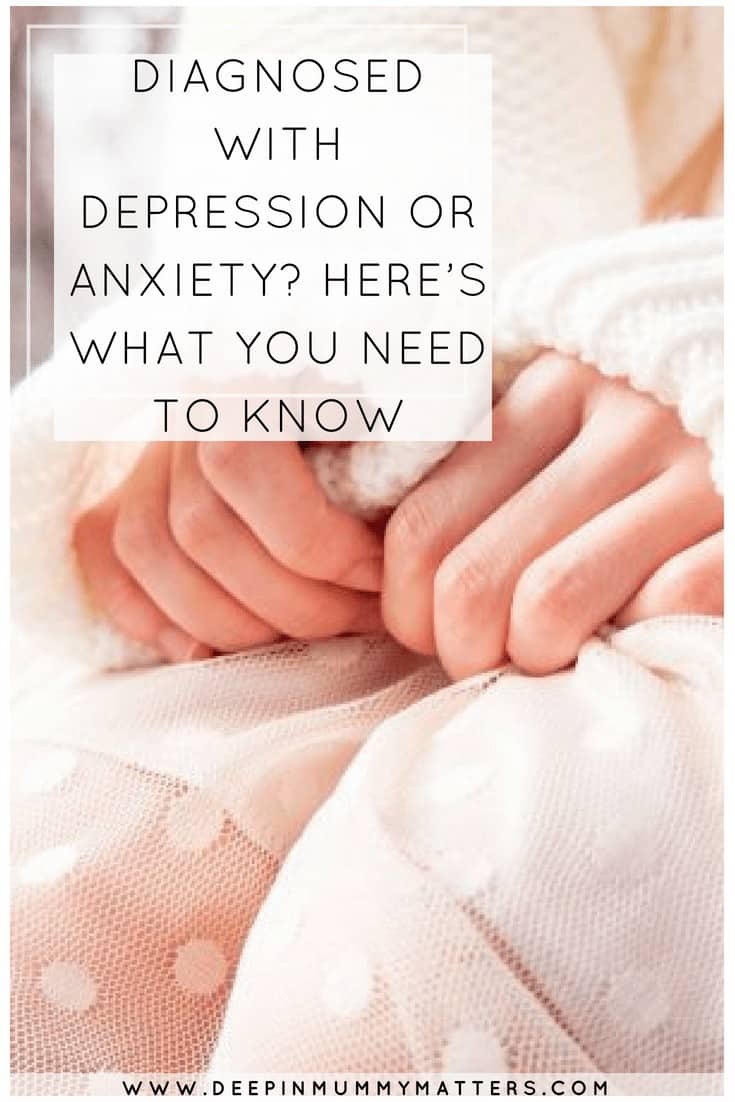Mental health issues are thought to affect around 1 in 4 adults in the UK at some point during their lifetimes. Some studies suggest that rates of mental health issues are on the rise, although whether this is a side effect of our modern society or the result of better diagnosing, is still much debated. What we do know is that mental health issues occur far more frequently than is often realised and that there still remains an unfortunate stigma around them.
Because of this stigma, and because there is generally little understanding of mental health issues among the general public, being diagnosed with such an issue can be scary and confusing. The good news is that the available support has improved dramatically in recent times and most people who are diagnosed with a mental illness will go on to live perfectly normal and healthy lives following treatment.
In this article, we have collated some of the most important pieces of information for those who have just recently been diagnosed with depression or anxiety, two of the most common mental health issues faced by adults today. The better prepared you are, and the more that you know about the illness and how to treat it, the better your chances of coming out the other side a stronger and happier person is. There are many treatments available, and it is important to find one that is right for you. Regenmedky.com provides a list of treatments that specialize in treating these conditions. If you are struggling, please reach out for help.
What Does My Diagnosis Mean?

Mental health issues are very different from physical health issues; this is a reflection of the fact that, while we all share essentially the same anatomy, our brains are all very different and our understanding of how subtle differences in our physical brain structure translate into different perceptual experiences of the world around us is very limited.
Consequently, mental health issues often present differences between patients with the same diagnosis. For example, depression is diagnosed in cases where the patient experiences a persistent low mood, although how this manifests itself and what it entails will vary from person to person. Some people’s depression manifests as persistent sadness, while others find that for them depression is marked by the absence of any emotion, good or bad. There is no right or wrong way to experience your mental illness.
In the case of anxiety, the triggers and manifestations of anxiety will differ from person to person. Some people find that crowded places give them anxiety, while others experience a more generalised form which can take hold at seemingly any moment. Your doctor or counsellor will help you to establish what your individual triggers are and how you can minimise the impact that any anxiety that you experience has on your day to day functioning.
What Treatments are Available?

Treating mental health issues is a complicated proposition. Unlike with physical illnesses, there is very rarely an identifiable physical cause which can be found and fixed. Instead, doctors base their treatment recommendations on our best understanding of the underlying causes. The most effective treatments for mental health issues involve therapy and there are a variety of different forms that this can take. For anxiety and depression, cognitive behavioural therapy (CBT) is the most commonly used types and has been found to be the most effective.
As well as cognitive therapies, there are also various pharmaceutical treatments which many people find to be helpful when looking for the best anxiety supplements. Usually, a combination of these two approaches is used in order to ensure that the patient is receiving the best of both worlds and most evidence suggests that administering both therapies at the same time gives patients the best chance of success. You could also find an online therapist: “https://www.thrivetalk.com/therapist-near-me/“.
Whilst there’s an awful lot of news about the benefits of CBD for anxiety, the more traditional advice from doctors is for patients to increase the amount of exercise they do. This has been shown to be beneficial for mental health and for wellbeing more generally, as well as ensure that they maintain a healthy and balanced diet.
Other Support

In addition to the medical support provided by doctors and therapists, there are other sources of support available for those suffering from mental health issues. The Samaritans are a charity who operates a 24/7 phone line which anyone can call if they find themselves struggling emotionally and in need of someone to talk to.
For those whose mental health issues make it difficult for them to find stable employment, there are state benefits available. Check out the Mental Health and Money Advice website if you are wondering what benefits can I claim for depression and anxiety.
Mental health issues affect a significant portion of the population and, while the stigma around them sadly remains, there is also an increasing awareness among the general public about how common and prevalent these issues are. There is no shame in being one of the many adults diagnosed with a mental health problem in the UK every year and a mental health diagnosis doesn’t reflect on the character of the patient.
Our understanding of the underlying mechanisms of these diseases continues to improve, as do our treatment methods.


